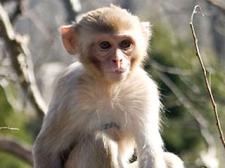Monkey Cloning Raises Troubling Questions Unconnected to the Status of Embryos

Legislation is needed to prohibit reproductive cloning and reduce risks to women who provide eggs
Oakland, CA – The apparent monkey cloning success at the Oregon National Primate Research Center gives new urgency to important social and safety issues raised by cloning-based stem cell research using human tissues, said the Center for Genetics and Society, a public interest organization.
CGS and other advocates for responsible oversight of human biotechnologies focus on three concerns about research cloning (also known as somatic cell nuclear transfer): the health risks to women of extracting the hundreds of eggs that cloning research requires; the need for effective and enforceable oversight to prevent unauthorized reproductive cloning efforts; and the potential for exacerbating health disparities.
The new cloning developments highlight the need for legislation at the federal level to reduce the risks to women who provide eggs for research and to prohibit reproductive cloning. They also underscore the importance of avoiding exaggerated claims about the likelihood or imminence of cloning-based medical treatments or cures.
“The California law on eggs for research that was passed last year – the first of its kind in the U.S. – is a good place to start,” said Marcy Darnovsky, CGS Associate Executive Director. The law, SB 1260, was authored by Senator Deborah Ortiz (D-Sacramento), a champion of women's health and an early supporter of stem cell research in California. The Center for Genetics and Society, along with Planned Parenthood Affiliates of California and the Pro-Choice Alliance for Responsible Research, worked closely with the former Senator's office on the landmark bill.
Concerns about the health risks of egg extraction focus on the drugs used to "shut down" women's ovaries and those used to "hyperstimulate" the ovaries to produce multiple eggs. Both are associated with serious adverse reactions, in some cases life-threatening. Deaths have been reported. The Oregon researchers used more than 300 monkey eggs to produce one viable stem cell line. In more than a decade of cloning research, the efficiency has not improved.
Scores of countries and about a dozen U.S. states have adopted prohibitions on reproductive cloning. “But we still don't have laws against reproductive cloning either nationally or in the majority of U.S. states,” pointed out CGS policy analyst Jesse Reynolds.
Commenting on the prospect of "individually tailored" treatments derived from cloning-based stem cell lines, Darnovsky said, “The personal-repair-kit approach to stem cell research is far-fetched. To the extent that researchers and their advocates still claim that cloning techniques will lead to personalized stem cell treatments, they should recognize that – even if these are someday technically possible – they would be enormously expensive, and thus would likely worsen our already shameful health disparities. We need to prioritize stem cell research mostly likely to produce treatments that can be made widely available.”
Contact:
Marcy Darnovsky
510-625-0819 x305



